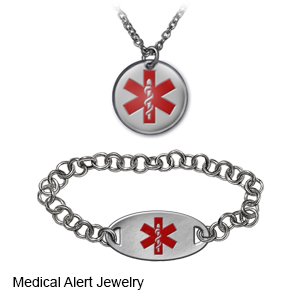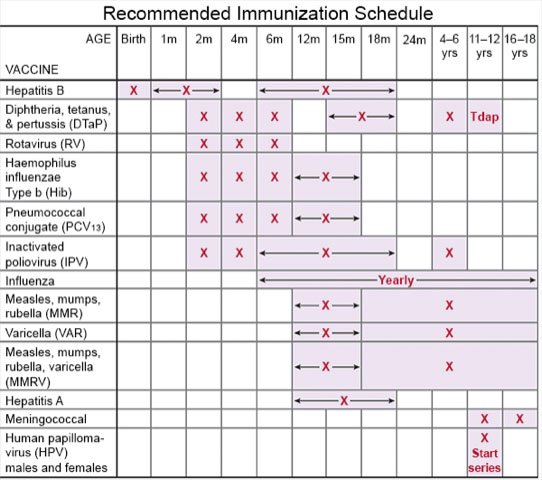Addison Disease in Children
Medically reviewed by Drugs.com. Last updated on Jun 5, 2024.
AMBULATORY CARE:
What you need to know about Addison disease:
Addison disease is a condition that causes low levels of aldosterone and cortisol. These hormones are made by your child's adrenal glands. Cortisol helps your child's body handle stress. Aldosterone helps your child's body balance salt, potassium, fluid. Addison disease may appear soon after your child is born, or when he or she reaches adolescence.
Signs and symptoms
may be present at birth or show up slowly over months or years. Your child may have any of the following:
- Feeling dizzy, weak, and tired
- Loss of appetite, or weight loss
- Nausea, vomiting, or diarrhea
- Muscle, joint, stomach, or back pain
- A craving for salty foods
- An increased sensitivity to cold temperatures, or sweating more than usual
- Darkening of the skin on the lips, palms, nipples, genital area, and inside the mouth
- Depression or trouble thinking clearly
- Adolescent females may stop having a monthly period
Call your local emergency number (911 in the US) if:
- Your child has a seizure.
- Your child loses consciousness or cannot be woken.
- Your child has shortness of breath or trouble breathing.
Seek care immediately if
your child has any of the following early signs or symptoms of an adrenal crisis:
- Your child's heart is beating faster than usual.
- Your child has a headache, hallucinations, or feels confused.
- Your child has muscle weakness or muscle cramps.
- You child has severe pain in his or her stomach, back, or legs.
- Your child has numbness and tingling in his or her fingers or around his or her mouth.
- Your child has trouble staying awake.
- Your child urinates less than usual or stops urinating.
- Your child has fewer wet diapers than usual.
Call your child's doctor or endocrinologist if:
- Your child has a fever.
- Your child has symptoms of a cold or the flu such as a cough or congestion.
- Your child has 2 or episodes of diarrhea.
- Your child has nausea or stomach pain, or is vomiting.
- Your child has so much vomiting that or she cannot drink any liquids.
- You sweats more than usual.
- You have questions or concerns about your child's condition or care.
Treatment
may include any of the following:
- Steroid medicine is given to increase your child's cortisol level. This medicine helps your child's body handle stress and prevent an adrenal crisis. Steroid medicine will also help decrease your child's symptoms such as weakness and fatigue. Always carry extra steroid medicine for your child. Do not skip a dose of your child's medicine. Do not stop giving your child this medicine without talking to his or her healthcare provider. Your child may have an adrenal crisis if he or she misses a dose of medicine or stops taking medicine.
- Aldosterone supplements may be given to help your child's body balance salt and fluid. This can help prevent dehydration and low sodium (salt) levels.
- Sodium supplements help increase the amount of salt in your child's blood. Your child may need to take salt supplements every day. Instead, he or she may need to take salt supplements before exercise, in hot weather, or when he or she has diarrhea or vomiting.
What you need to know about an adrenal crisis:
An adrenal crisis happens when your child's cortisol and aldosterone levels suddenly drop. This may lead to low blood pressure, dehydration, and low blood sugar. An adrenal crisis is life-threatening and needs immediate treatment in a hospital. Your child will be given steroids and glucose (sugar). He or she may be given sodium (salt) and medicine to increase his or her blood pressure. Your child may also need IV fluids to treat dehydration. An adrenal crisis can happen if your child suddenly stops taking his or her medicine. It can also happen when your child's body is under more stress than usual. This may happen during surgery, an illness, or trauma.
Manage your child's condition during sick days:
Sick days may include days your child has a cold, diarrhea, or is vomiting. Your child's body will need more steroid medicine when he or she is sick to prevent an adrenal crisis. Increase your child's steroid dose as directed when he or she is sick. You may need to inject steroid medicine if he or she is vomiting and cannot swallow medicine. Your child's healthcare provider will show you how to inject your child's medicine. Ask if your child needs to drink an oral rehydration solution (ORS) during an illness. An ORS has the right amounts of water, salts, and sugar that your child needs to replace lost body fluids.
Check your child's blood pressure and blood sugar levels as directed:
Write down your child's blood pressure readings and blood sugar levels. Bring these numbers to your child's follow-up appointments. Ask your child's healthcare provider for more information about how to check his or her blood pressure and blood sugar levels.
Have your child wear medical alert jewelry or carry a card that says he or she has Addison disease:
Ask your child's healthcare provider where to get these items.
 |
Ask about vaccines your child may need:
Vaccines can help prevent illnesses that may trigger an adrenal crisis. Ask your child's healthcare provider if your child should get a flu or pneumonia vaccine, and when to get the vaccine.
 |
Give directions to your child's school and caregivers:
Make sure your child's teachers and caregivers know he or she has Addison disease. Provide written instructions about what to do if your child has symptoms of an adrenal crisis. Give extra doses of steroid medicine to your child's caregivers or school nurse.
Follow up with your child's doctor or endocrinologist as directed:
Your child will need ongoing tests to check his or her hormone levels. Your child's growth and development will also be closely monitored. Write down your questions so you remember to ask them during your visits.
© Copyright Merative 2024 Information is for End User's use only and may not be sold, redistributed or otherwise used for commercial purposes.
The above information is an educational aid only. It is not intended as medical advice for individual conditions or treatments. Talk to your doctor, nurse or pharmacist before following any medical regimen to see if it is safe and effective for you.
Further information
Always consult your healthcare provider to ensure the information displayed on this page applies to your personal circumstances.
